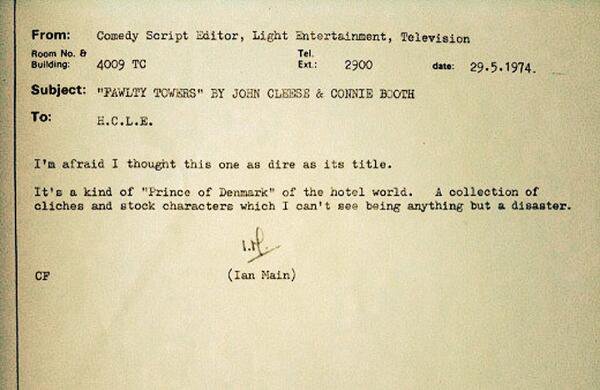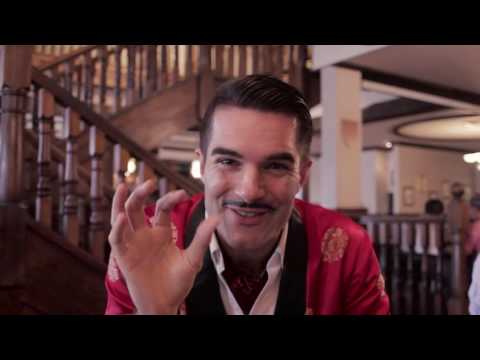Confessions of a Newsjack Addict
By Simon Paul Miller
My name is Simon Paul Miller and I’m an addict. The 12th September 2013 was the day I got addicted. Before that, I just dabbled. I started by submitting a couple of one-liners, it seemed harmless enough, but then I moved on to the harder stuff, sketches. I thought I could handle it, but I was wrong. I crave the next high I’ll get when an email will pop into my inbox telling me I have something in that night’s edition of Newsjack.
 I can try to remember the first time it happened, but it’s not like a normal memory. It’s like a memory of a dream. The email was vague in detail as, by necessity, it was the same email sent out to all the writers who’d managed to get something in. Once I’d recovered from the shock, and my family had recovered from my reaction, I was left with the thought… What was it they were going to use? Was it the sketch I’d sent in or one of my one-liners, or maybe more than one, or maybe a sketch and some one liners!
I can try to remember the first time it happened, but it’s not like a normal memory. It’s like a memory of a dream. The email was vague in detail as, by necessity, it was the same email sent out to all the writers who’d managed to get something in. Once I’d recovered from the shock, and my family had recovered from my reaction, I was left with the thought… What was it they were going to use? Was it the sketch I’d sent in or one of my one-liners, or maybe more than one, or maybe a sketch and some one liners!
Normally, I’d listen Newsjack as a downloaded podcast over the weekend, but I had to know. Over the next five and a bit hours, I pondered over and over as to which material had made it. My heart pounded, my head buzzed and I only had a vague sense the real world was still around me. At about 10:20 I tuned our TV into Radio 4 Extra. I’d never listened to the radio on TV before. It’s very strange watching a radio show. It feels pointless looking at the screen but also odd not to.
The programme on before Newsjack consisted of two people shouting at each other. They appeared to think they were funny, I couldn’t tell. Eventually that programme ended. It was 10:30. The announcer wittered on and on and on and on, for thirty three seconds, before the Newsjack theme finally started. There was no monologue then, Justin Richards launched into one-liners sent in and I didn’t have long to wait. The third joke was mine…
“The Sunday Times has revealed that residents of Coleshill in North Warwickshire have the highest rate of Viagra prescriptions in the country. No one from the town was available for comment.”
And the audience roared. Wow! Fantastic! I loved it. I devoured it. Then listened to the rest of the show in what proved to be a vain hope that something else I’d submitted had been accepted. And then they read out the names of people who’d written the stuff on the show. I knew they did that, but I hadn’t thought about it. Any second now, my name was going to be read out.
But it wasn’t. I was confused. I tried to figure out why. Maybe they only included people who’d written sketches, but there were many more names than sketches. Maybe they didn’t include people who’d only had one one liner on the show. It didn’t matter. My joke had been told on the radio. It took a long time to get to sleep that night.
The next day I found out, on Twitter, that an error had been made and, as a result, a small number of contributors had been omitted from the credits. The team apologised on Twitter and a number of irate comments were tweeted back (none from anyone who’d been omitted). Sure, I was disappointed not to have heard my name, but given the enormity of the task the Newsjack team have to achieve, to get through all the submissions and produce a show in about 48 hours, I can not only understand how it happened, I’m surprised it doesn’t happen more frequently.
I’d noted that my joke had had six words removed. (If you’re interested, my version started, “The residents of the town of Coleshill in North Warwickshire have been revealed by the Sunday Times as having the highest rate…”; if your not, skip this bit in brackets.) I took a note from this to work harder at making my jokes more succinct, maybe it would improve my chances of success.
Having actually got something on the show, I was now a lot more enthusiastic, and a lot more optimistic, as I tackled the task of extracting humour from the week’s news for the next deadline. On Thursday, I kept refreshing my in box, expecting the Newsjack email to appear. It didn’t arrive. I listened to the show that night, just in case there’d been a problem in sending the emails out, but no, I hadn’t succeeded.
The next week, I had to go out that Thursday night, and left leaving the house as late as possible to see if I’d got ‘the’ email. At 6:45pm I had to accept I had failed again to make the show. Maybe, I thought, my success had been a one off, never to be repeated.
It wasn’t till the following morning I discovered that I had got an email and had got this one liner on the show….
“New research has found that companies who employ a significant number of women bosses perform better than those dominated by men – mainly because the companies spend less on salaries.”
This time, it was exactly as I’d written it and my name was read out in the credits. For the next three weeks, every spare moment was spent scouring the papers for stories I could make a joke from. I also managed to get tickets to see episodes five and six being recorded. I was in the audience, fingers crossed, wondering if the next joke or sketch would be mine. Both times I would make the long train journey home, from London to Leamington Spa, disappointed.
For series ten I set myself a goal to get at least three one liners or one sketch in the series.
The deadline for sketches is midday Monday. This gives writers who don’t have to work on Monday mornings an advantage over those of us who do. We have to finish off our sketches on Sunday night, or in the early hours of Monday morning. The deadline for one-liners is midday Tuesday, so on Monday nights I would be agonising over which of my precious one-liners to send in. Back then, in the good old days, the limit was as many one-liners you could fit on a page.
Deciding which one-liners to send is a form of self-inflicted, psychological torture. I’d ask friends to rate my jokes but, once I got the results back, I’d often be looking at choosing between jokes that had been rated averagely by all the panel or jokes rated highly by some but totally disliked by others. And if only it were as simple as being funny and topical! If two writers send in the same joke, the production team discard it, so you need to consider how likely it is that another writer will send in the same joke. This is what I call ‘The Newsjack Dilemma.’ I can’t be the only Newsjack writer who’s heard a one liner on the show that matched one I’d discarded, the irony being if I had sent it in, neither I nor the other writer would have got it on the show.
One problem with writing for the show is that I found myself becoming very critical of jokes that did make it into the show, especially in the weeks when I’d not had anything accepted, i.e. most weeks. There’s bound to be at least one joke that will make me think, ‘they picked that over one of my mine!’ But there is no definitive measurement of how funny a joke is. It’s a personal thing that varies from person to person.
The inverse of this, however, is when I hear a joke that I think is much better than the one I sent in on a particular topic. Jimmy Carr says you don’t make jokes, you discover them. It’s like trying to solve a puzzle and when I hear a better solution than one I thought of, I really enjoy and appreciate the writer’s wit- whilst kicking myself for not finding the joke for myself.
After five episodes of season ten had aired without a single credit, my confidence had taken a blow, my goal was unreachable and I was desperate to get something, anything, on. A new production team had taken over the show and I’d convinced myself that my sense of humour was incompatible with theirs. I’d noticed, indeed it had irritated me, that the new team were often picking jokes that were not topical so, for my last page of one liners for that series, I included jokes that were not so closely linked to that week’s news and it worked…
“The farmer, who erected solar panels so large they blocked out the sun, has been arrested on a charge of daylight robbery.”
A few weeks before series eleven started, an email was sent out to all the writers who’d had something accepted in the previous series inviting us to a meeting held in a pub’s basement near Broadcasting House. As far as I know, this was a one off event. Never repeated, possibly because there were complaints made that it was unfair to writers not in a commutable distance to London. I enjoyed the evening but there wasn’t much information to be gleaned that wasn’t available on the web site. I wish I’d had time to stay afterwards and socialise with the other writers, but I had to catch my train. I did manage to speak to a couple of writers just before it started. They’d both had sketches accepted and both had commented that their sketches had been changed quite a lot by a script editor before being recorded. Another thing that came out was that the producers, Charlie Perkins and Arnab Chanda (who appeared to me to be the youngest in the room), had been told that series ten, their first, was not topical enough and they’d be looking to rectify this. So my new tactic to send in non-topical jokes was unlikely to work again.
I went into series eleven with a renewed feeling of optimism, but, like series ten, after five episodes I had not achieved a credit. It was late on Monday 27th October. I needed to go to bed but I was one one liner short of the limit I could send in. I didn’t want to waste that spot when I found a newly posted story on the internet that inspired this joke…
“Claims that listening to Bohemian Rhapsody can cure illness have been confirmed by doctors after they managed to cure one poor boy, from a poor family…”
On paper, I didn’t think it was a great joke, so I was really surprised that, not only did it get on the show, but also that it got a huge laugh from the audience.
I didn’t get anything in the next series. Over time, it’s got tougher to get things on the show. Not only had he number of submissions gone up but, because the team were receiving so much material, the number of one liners you could submit had dropped from as many you could fit on one page, to nine, (six breaking news and three TV listings), and then to six (three breaking news and three Viewsjacks).
Another possible reason (excuse?) I came up with for my lack of success was a change in the format of the show where the first eight minutes of the show is taken up by an introduction, normally about a topic that has occurred in the news after the submission deadline. I can see why they did this, it makes the show more topical. With this format the show did win the Rose d’Or Best Radio Comedy Award for 2015, but it does mean less submitted material makes it into the show. I had assumed they had cut the number of one liners they used but when I compared an episode I’d kept from 2013 to one in 2016, the number of one liners were about the same (the 2016 episode had 20 one liners compared to 21) but the number of sketches had dropped dramatically, from 17 to eight.
So having come up with some excuses, I was very pleased to achieve two credits in series thirteen. The first one was my first Viewsjack item, where you have submit lines where a member of the public voices an opinion …
“[SECRETIVE] I am really worried that Ashley Madison will find out I’m using another infidelity dating website.”
And once again I managed to get a News item in the last episode of the series…
“As part of a cull on big brand names, Tesco’s have stopped stocking Carlsberg lager. A statement from Carlsberg said it was unable to comment, but if Carlsberg could comment, it would probably be the rudest comment you’d ever heard.”
For series fourteen, the most recent as I write this, I failed to get any credits. Of course, I’ve come up with an excuse. Despite my efforts to the contrary, the rehearsals and recording of my Rhyming Detective Podcast (which I had to write, organise and perform in) clashed with this series air dates. As a result, I only sent in five sketches over the whole series and rarely achieved getting six one liners, never mind having a list to pick from.
So I’ve managed to get six credits on Newsjack, all for one liners. No success on sketches for Newsjack yet although I did get an email back for one of four sketches I sent to Newsjack’s sister show ‘The Show What You Wrote’ in 2016. This is a Radio 4 Extra show that consists of four episodes a series and does not appear to have a fixed slot in the schedules. In the email they said…
“This is just to let you know that something what you wrote is very good, and we’ve put it under consideration for the recordings. We don’t think there’s any more work that needs to be done on it, so you don’t need to do anything else for now … It might *not* get recorded – we’ve asked for rewrites on a lot of things, and obviously we want to be picking from a larger pile of sketches than we can use – but I’d say at this stage it stands a very good chance.”
 Alas, my sketch didn’t make the final recording, but I’m glad I managed to get to the first recording session in Manchester and see my sketch being recorded (as well as seeing Jason Mansford live). Had I not gone, I wouldn’t have known that my elderly, male executive character had been recast as a young woman and the young, female producer had been recast as an older woman. The sketch started well, got some good laughs but then, probably not helped by a fluff which resulted in the sketch being restarted, the end of the sketch failed to get any laughs. However, to quote from the very nice letter from the BBC informing me it hadn’t made the final edit, “You wrote one of the 80 best sketches we read out of about 2,500”.
Alas, my sketch didn’t make the final recording, but I’m glad I managed to get to the first recording session in Manchester and see my sketch being recorded (as well as seeing Jason Mansford live). Had I not gone, I wouldn’t have known that my elderly, male executive character had been recast as a young woman and the young, female producer had been recast as an older woman. The sketch started well, got some good laughs but then, probably not helped by a fluff which resulted in the sketch being restarted, the end of the sketch failed to get any laughs. However, to quote from the very nice letter from the BBC informing me it hadn’t made the final edit, “You wrote one of the 80 best sketches we read out of about 2,500”.
So maybe next series I’ll finally get a sketch in Newsjack. Maybe then, my addiction will be cured and I won’t feel the need to send something in for every episode. Of course, when I say I’m addicted, actually I could give up whenever I wanted to. I could. Honest, I could.
Simon Paul Miller is the creator of The Rhyming Detective podcast.
If you like this article check out another of Simon’s posts on getting an audience for a live event.

 Ricky and Steve worked together at a London radio station XFM in the late 90s. Ricky invented a “Seedy boss” character while working on the show and Steve went to work at the BBC and did a course for trainee TV producers. Part of the course was producing a piece of work from a one-day video shoot. So Ricky and Steve got together to write and film a short documentary about the delusional boss they called David Brent. A first rough cut of The Office was filmed where Ricky used to work at the University of London Union, and it was this material that was identified as having potential by the BBC.
Ricky and Steve worked together at a London radio station XFM in the late 90s. Ricky invented a “Seedy boss” character while working on the show and Steve went to work at the BBC and did a course for trainee TV producers. Part of the course was producing a piece of work from a one-day video shoot. So Ricky and Steve got together to write and film a short documentary about the delusional boss they called David Brent. A first rough cut of The Office was filmed where Ricky used to work at the University of London Union, and it was this material that was identified as having potential by the BBC.


